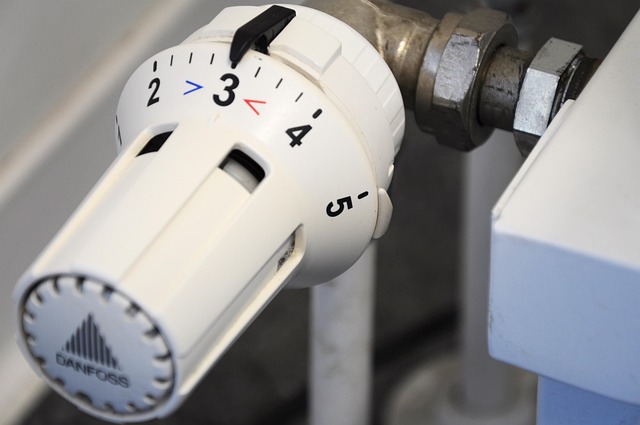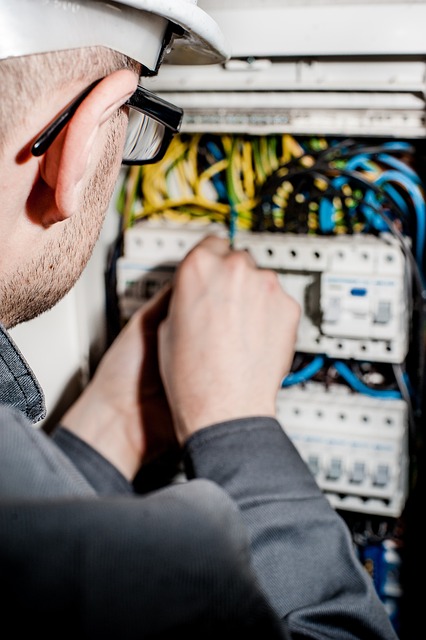Eugene, Oregon, is witnessing a shift towards electric vehicles (EVs), driven by environmental awareness and increased EV model availability. However, range anxiety about battery life remains a challenge. The demand for cost-effective and scalable EV charging infrastructure is urgent. EV chargers vary in type, cost, and speed, with Level 1 being the cheapest but slowest, Level 2 offering quicker times for moderate use, and Rapid DC providing fastest charging for frequent users. Home EV charger installation in Eugene offers convenience, savings, and access to utility incentives. It requires careful planning, including permit obtaining, electrical system assessment, and professional installation. Public EV charger installations at parks, shopping centers, and facilities are also available throughout the city, supported by local government incentives and programs aimed at promoting EV adoption.
In the rapidly evolving landscape of sustainable transportation, electric vehicles (EVs) are gaining traction in Eugene, Oregon. Understanding the growing need for EV charging infrastructure is paramount as the city navigates its transition to cleaner energy options. This article explores various aspects of EV charger installation, from types and cost implications to the benefits of home charging and government incentives. Discover top affordable EV charging solutions tailored for Eugene residents, streamlining the adoption process and paving the way for a greener future.
- Understanding the Growing Need for EV Charging in Eugene, OR
- Types of EV Chargers and Their Cost Implications
- Benefits of Installing an Affordable EV Charger at Home
- Steps Involved in EV Charger Installation Process
- Top Affordable EV Charging Solutions for Eugene Residents
- Government Incentives and Local Programs to Support EV Adoption
Understanding the Growing Need for EV Charging in Eugene, OR

In recent years, there has been a significant shift towards electric vehicles (EVs) in Eugene, Oregon, as the city embraces a more sustainable future. This transition is driven by both environmental consciousness and the growing availability of EV models. However, one of the primary concerns for EV owners is access to charging infrastructure—a need that’s only expected to increase with time. As more electric cars hit the road, the demand for convenient and affordable EV charger installation in residential, commercial, and public spaces will soar.
Eugene OR is witnessing a growing network of charging stations, but there’s still a substantial gap between supply and demand. The city needs scalable, cost-effective solutions to accommodate the expanding EV market. Affordable EV charging solutions not only benefit current EV owners but also encourage more people to make the switch by addressing one of their biggest barriers to entry—the fear of range anxiety.
Types of EV Chargers and Their Cost Implications

Electric Vehicle (EV) chargers come in various types, each with different cost implications and suitable for specific needs. The most common types include Level 1 chargers, which are basic and plug into standard household outlets, making them the least expensive to install but also the slowest charging option. These are ideal for light usage or supplemental charging at home.
Level 2 chargers, also known as 240-volt chargers, offer faster charging times than Level 1 and are more suitable for home use with modest EV ownership. They require dedicated circuit upgrades, increasing installation costs but providing quicker charging, typically 3-5 hours to recharge a typical EV battery. For frequent EV users or those with larger vehicles, rapid DC chargers offer the fastest charging times, usually completing a charge in under an hour, but these are more expensive both to install and use due to their advanced technology and higher power outputs.
Benefits of Installing an Affordable EV Charger at Home

Installing an affordable EV (Electric Vehicle) charger at home offers numerous advantages for Eugene, OR residents looking to adopt electric mobility. One of the key benefits is convenience; having a dedicated charging station eliminates the need to search for public charging stations, saving time and ensuring your vehicle is always ready for that next long-distance trip. This is especially valuable in remote areas or during peak travel seasons when public chargers might be occupied.
Additionally, home EV charger installation can lead to significant cost savings. With the growing popularity of electric vehicles, many utilities offer incentives and rebates to encourage the adoption of clean energy technologies. These incentives often include reduced rates for charging at home, making it more economical than using public charging stations. Moreover, with a home charger, you gain control over your charging schedule, allowing you to take advantage of off-peak hours when electricity rates are lower, further reducing overall charging costs.
Steps Involved in EV Charger Installation Process

The process of installing an EV (electric vehicle) charger, also known as an EV charging station, involves several key steps to ensure a smooth and efficient setup. Firstly, site selection is crucial; choose a location with adequate space, easy accessibility for vehicles, and proximity to power sources. This could be at home, in a public parking lot, or within a business premise. Once the ideal spot is identified, assess the electrical requirements; EV chargers demand specific voltage levels, so consult an electrician to ensure your existing infrastructure can support the charger’s needs.
Next, obtain necessary permits and approvals from local authorities, as regulations vary across regions. This step guarantees compliance with safety standards and building codes. After obtaining the required permissions, choose the right type of EV charger based on factors like vehicle types intended to use it and charging speed preferences. Finally, professional installation is recommended to guarantee safe and correct wiring, ensuring your EV charger is fully functional and compliant with all regulations.
Top Affordable EV Charging Solutions for Eugene Residents

In Eugene, Oregon, residents now have a growing array of affordable EV charging solutions to choose from as electric vehicles gain popularity. One popular option is ev charger installation at home, offering convenience and cost savings over public charging stations. Many local electricians specialize in installing Level 1 and Level 2 chargers, suitable for all types of EVs. These installations can be tailored to individual needs, from basic outlets to sophisticated smart charging systems.
Additionally, community-focused initiatives are promoting accessible ev charger installation around the city. Public charging stations at parks, shopping centers, and public facilities provide a safety net for longer trips. Some stations offer competitive pricing models, further enhancing affordability. With these diverse options, Eugene residents can embrace electric vehicle ownership while enjoying the convenience of readily available charging infrastructure.
Government Incentives and Local Programs to Support EV Adoption

In Eugene, Oregon, the local government and various organizations are actively promoting electric vehicle (EV) adoption through a range of incentives and programs. These initiatives aim to make EV ownership more accessible and affordable for residents, while also encouraging the growth of a robust EV infrastructure. One significant aspect is the availability of tax credits and rebates for those who install EV chargers at home or in public spaces. These financial benefits can greatly offset the cost of ev charger installation, making it a more viable option for both individuals and businesses.
Local programs further support EV adoption by offering grants and partnerships to install charging stations in residential areas, parking lots, and public facilities. Such efforts contribute to expanding the network of accessible EV chargers, addressing one of the primary concerns of potential EV buyers—the availability of charging points. By combining these government incentives with local initiatives, Eugene is positioning itself as a forward-thinking city that welcomes and facilitates the transition to electric vehicles.














